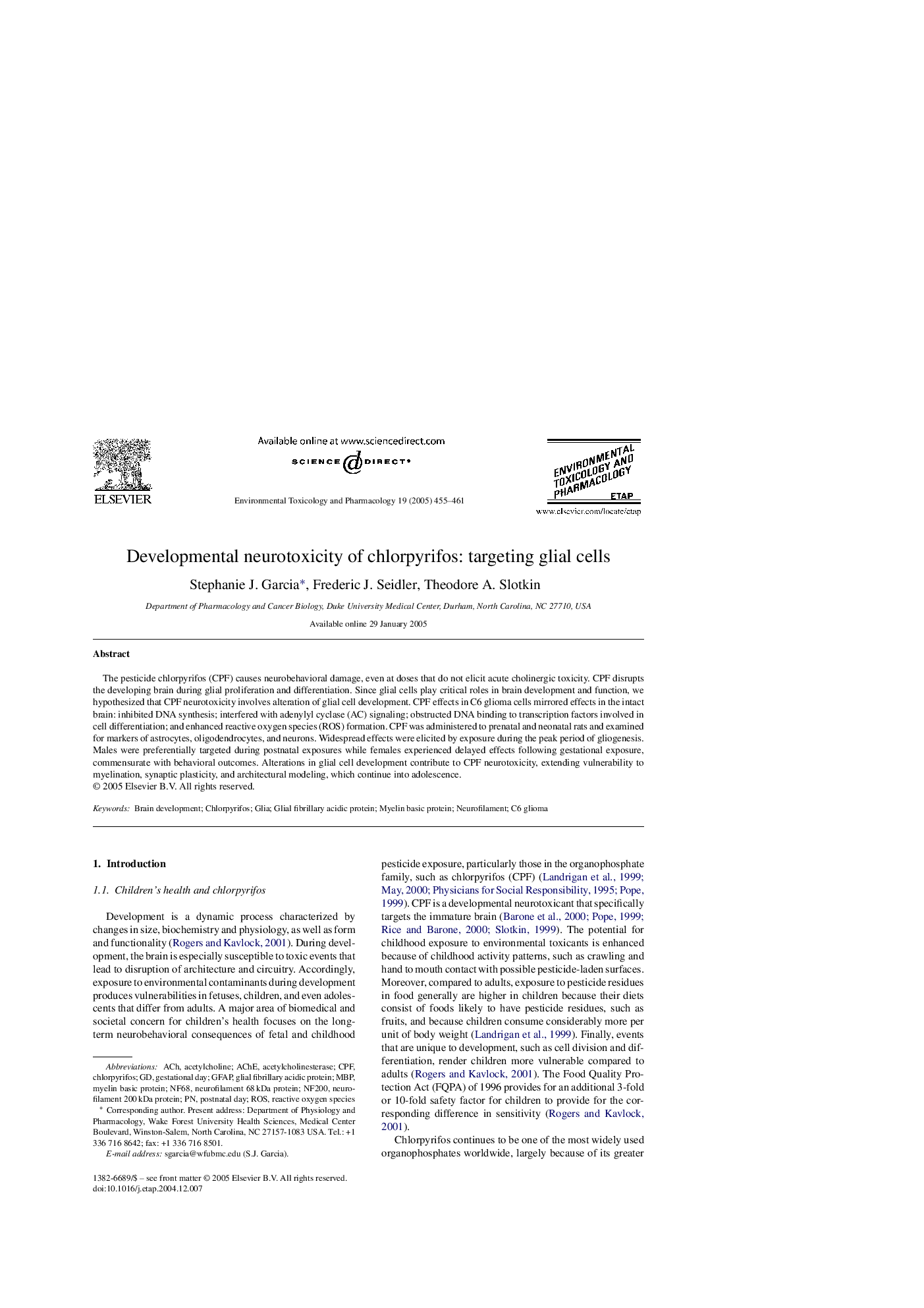| Article ID | Journal | Published Year | Pages | File Type |
|---|---|---|---|---|
| 9030066 | Environmental Toxicology and Pharmacology | 2005 | 7 Pages |
Abstract
The pesticide chlorpyrifos (CPF) causes neurobehavioral damage, even at doses that do not elicit acute cholinergic toxicity. CPF disrupts the developing brain during glial proliferation and differentiation. Since glial cells play critical roles in brain development and function, we hypothesized that CPF neurotoxicity involves alteration of glial cell development. CPF effects in C6 glioma cells mirrored effects in the intact brain: inhibited DNA synthesis; interfered with adenylyl cyclase (AC) signaling; obstructed DNA binding to transcription factors involved in cell differentiation; and enhanced reactive oxygen species (ROS) formation. CPF was administered to prenatal and neonatal rats and examined for markers of astrocytes, oligodendrocytes, and neurons. Widespread effects were elicited by exposure during the peak period of gliogenesis. Males were preferentially targeted during postnatal exposures while females experienced delayed effects following gestational exposure, commensurate with behavioral outcomes. Alterations in glial cell development contribute to CPF neurotoxicity, extending vulnerability to myelination, synaptic plasticity, and architectural modeling, which continue into adolescence.
Keywords
Related Topics
Life Sciences
Environmental Science
Health, Toxicology and Mutagenesis
Authors
Stephanie J. Garcia, Frederic J. Seidler, Theodore A. Slotkin,
